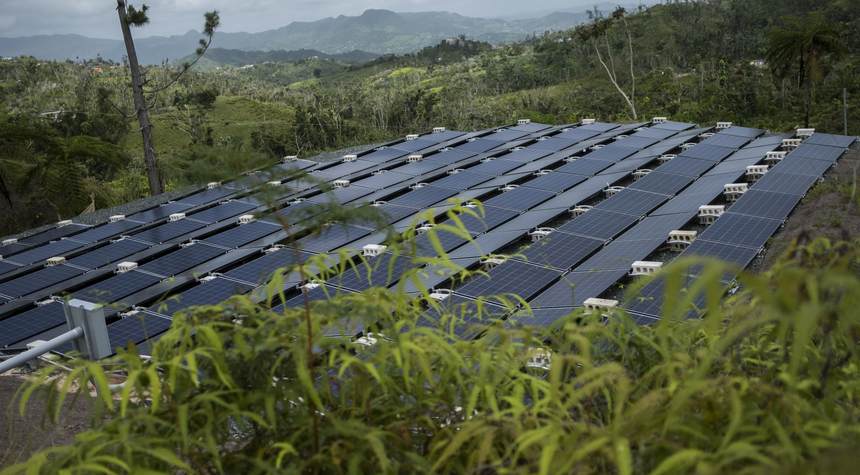
Despite objections from the Biden administration, the House voted 221-202 to strike down tariff protections given during the Obama administration for solar panels built by Chinese manufacturers.
The Chinese solar panel industry already dwarfs the U.S., and the need for a tariff — if there ever was a need — is gone.
“Joe Biden’s decision to protect Communist China’s solar manufacturers from U.S. tariffs is another demonstration of weakness from an already spineless administration,” House Majority Whip Tom Emmer (R-Minn.) told Fox News Digital.
“House Republicans are continuing to lead where the White House has failed in holding China accountable by working across the aisle to nullify this absurd rule,” he continued.
The Chinese were cheating anyway.
In June 2022, Biden implemented a 24-month moratorium on the enforcement of solar panel anti-circumvention tariffs introduced under the Obama administration to protect U.S. companies. The White House characterized the move as a two-year “bridge” that would allow companies to build solar panel production capabilities on U.S. soil.
The move, however, came after the Commerce Department said months earlier it would investigate whether Chinese manufacturers were routing solar panels through countries in Southeast Asia to avoid U.S. tariffs. And in December, the agency published its preliminary findings showing four large solar companies had routed products through Cambodia, Malaysia and Vietnam to circumvent duties.
The Commerce Department is expected to release its final report in May, where its report will prove that China has been actively and deliberately circumventing the tariffs.
Biden doesn’t care. He says he will veto the bill if it reaches his desk anyway.
“With every passing month the CCP gets closer to dominating the solar market, making it harder for Americans to compete,” Rep. Bill Posey (R-Fla.) said in a statement to Fox News Digital after the vote Friday. “Today’s bipartisan vote holds China accountable for violating our trade laws and scores a big win for American solar manufacturers and workers.”
“The United States can and should focus its resources into developing our own capability to manufacture quality solar products and boosting American competitiveness around the world and I want to thank my colleagues for advancing this important bipartisan legislation,” the Florida Republican added.
Chinese apologists in the U.S. are none too pleased with Congress.
Green energy industry groups like American Clean Power and the Solar Energy Industries Association (SEIA), meanwhile, have pushed back on the legislation and have expressed support for Biden’s emergency declaration. SEIA, which counts energy utility and Chinese solar companies among its members, has argued the Commerce Department investigation had a chilling effect on the solar supply chain, hurting American jobs.
A group of environmental groups have also lobbied Congress to vote against the bill.
If you’re going to apply a tariff to foreign manufacturing, it should be enforced. The need to lift the tariff has not been fully demonstrated, so rather than allow cheap Chinese solar panels to flood the U.S. market, put American companies on a firmer footing by making Chinese products at least as expensive as their U.S. competitors.
The reason there’s a need for a “bridge” for American solar panel manufacturers is that trading rules were not enforced by the Obama or Biden administrations. Trump imposed a stiff four-year tariff regime on solar imports in 2018, and Biden promptly rolled back most of it. Now, America is playing catchup thanks to Biden’s myopic view that battling climate change was more important than creating a larger, more reliable American solar power industry.
https://pjmedia.com/news-and-politics/rick-moran/2023/04/30/bipartisan-house-votes-to-end-tariff-protections-for-chinese-solar-manufacturers-n1691578
No comments:
Post a Comment